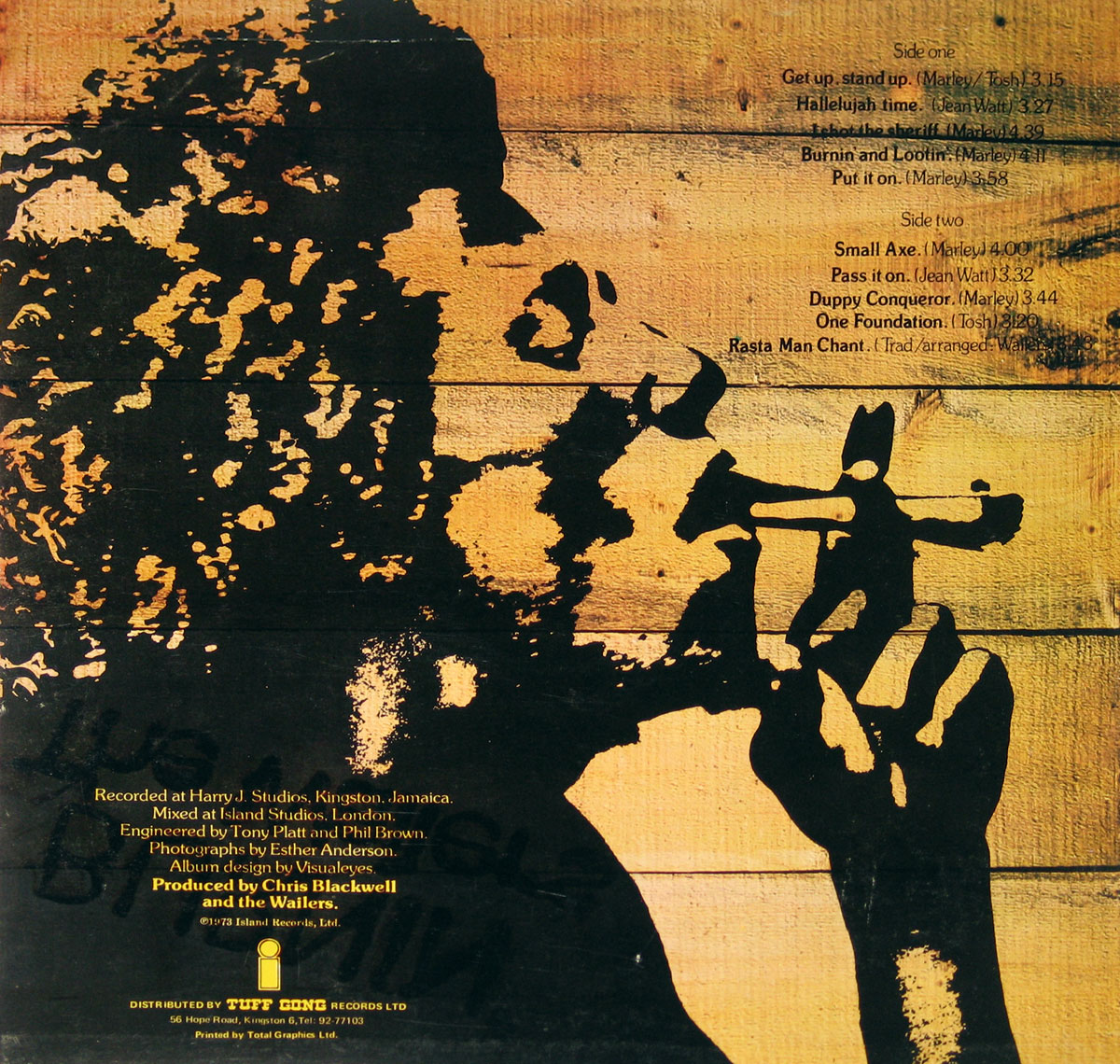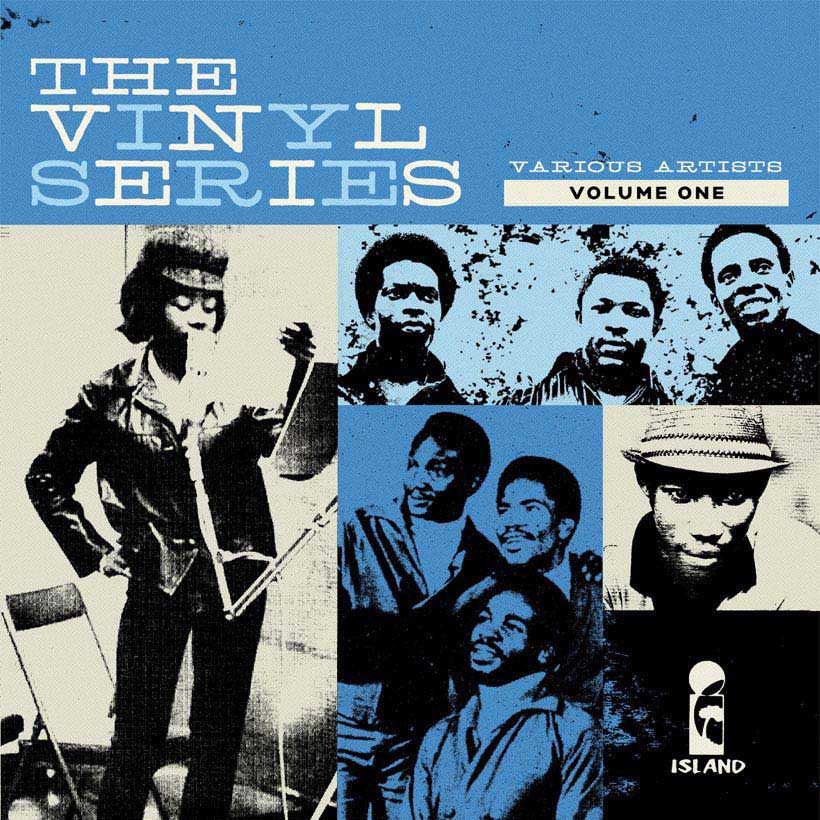#VedicRoots
Hour long super cool vibes Vedic Roots session for Boiler Room at Southall.
#VedicRoots
Hour long super cool vibes Vedic Roots session for Boiler Room at Southall.
#rebelmusic #reggae #rasta
Ultimately, however, international reggae‘s appeal to international audiences may have had more to do with changes in the image of reggae artists, the packaging of the albums, and the sound of the music itself.
In his efforts to market the Wailers, for example, Blackwell first molded the Waiters‘ image into that of a rock-and-roll group. While reggae “groups” typically had consisted of a loose collection of singers and hired studio musicians, Blackwell promoted the Wailers as a stable, self-contained “band”—much like the Rolling Stones or Led Zeppelin.

Second, Blackwell led a new trend among Jamaica’s record producers toward original, thematic, and full-length LP (long-play) albums, again following the lead of rock-and-roll groups. Previously Jamaica’s
record producers had distributed mostly singles or cheaply produced compilations of “greatest hits”.
Finally, those albums came packaged in glossy, well-produced jackets promoting the image of the rebellious, ganja-smoking Rastafarian. On the back cover of the Waiters‘ 1973 album Burnin‘, for example, Marley was pictured smoking a 12-inch spliff, or marijuana cigarette. On Peter Tosh‘s 1976 album, Legalize It, the singer was photographed crouched down in a ganja field. Reggae album covers also emphasized the Rastafarian’s symbol of black defiance, the dreadlocks, or displayed the Ethiopian colors of red, green, and gold. The cover of the Wailers‘ 1980 album Uprising, for example, featured a drawing of Bob Marley, along with the album’s title in red, and a background of green mountains
and a gold sun.
While most of the major instrumental innovations of international reggae were established during the early reggae period, international reggae was marked by a more sophisticated and polished studio sound. Most early reggae songs were recorded in primitive studios in Jamaica. International reggae, however, generally was recorded in state-of-the-art studios in the United States or Great Britain.
According to Jones, this helped to undermine “the common accusation made by rock fans that reggae was a music of ‘inferior’ quality”. In the first attempt to reverse this trend, Chris Blackwell took the Wailers‘ instrumental tracks for Catch a Fire, previously recorded in Jamaica, and remixed, edited, and mastered the tracks in a London studio.
Rock critics Ed Ward, Geoffrey Stokes, and Ken Tucker highlighted the dramatic change in reggae’s new sound: “Catch a Fire” was a “revolutionary example of reggae recording, far superior in its technology than most other reggae records”.
U.S. and British record producers also manipulated the instrumentation in reggae arrangements to create a lighter, “softer” reggae. Some U.S. record producers would deemphasize reggae’s dominant instruments, the electric bass guitar and drums, and push the keyboard and electric guitar to the front of the mix. In 1980, Jamaican dub poet Linton Kwesi Johnson provided a clear rationale for the systematic manipulation of the reggae sound:
“[there was the] belief that the hard Jamaican sound, with the emphasis on the drum and the bass, would not be as accessible to the non-Jamaican listener as a lighter sounding production would be”.

To appeal to international audiences, reggae musicians also incorporated familiar genres of American music into the reggae arrangement.
During the remixing of the Wailers‘ Catch a Fire, for example, Blackwell dubbed traditional rock-and-roll instruments, including rock guitar and synthesizer, over the reggae beat. During the recording of
the same album, a session guitarist, Wayne Perkins, also added guitar solos. Throughout their career, the Wailers dabbled in blues (“Talkin’ Blues” [Natty Dread]), funk (“Is This Love?” [Kaya]), and folk music
(“Redemption Song” [Uprising]). Similarly, Toots and the Maytals, in their 1973 Funky Kingston, fused R&B and reggae into the album’s title song.
In sum, the new international success of reggae music in the 1970s may have been more the result of marketing and changes in its sound than changes in its “message.” Reggae was still a “rebel music.” Growing up in some of Jamaica’s worst slums, reggae musicians still critiqued Jamaica’s neocolonial society. Reggae musicians also expressed concern about international affairs, specifically political problems on the African continent. While still sensitive to the problems at home, they also began
to identify themselves more as Africans than Jamaicans. In the final analysis, however, reggae’s international success probably was more the result of changes in its sound. Record producers improved and “softened” the reggae sound and incorporated new instruments, such as synthesizers and rock guitars, into the reggae arrangement.
Reggae musicians also borrowed freely from musical genres including rhythm and blues and funk. Yet whatever the explanation, reggae’s sudden status as an international musical sensation focused unprecedented attention on the Rastafarian movement and exacerbated tensions within the move-ment. Indeed, the music created whole new groups of supposed Rastafarians apparently attracted to the movement by little more than the image of the “Rastaman” and the music itself. These “pseudo” Rastafarians had little in common with traditional Rastafarian principles and beliefs.
Parts of Chapter Reggae Music in the 1970s: “Bubbling on the Top 100” from:
Stephen A. King (1998) International reggae, democratic socialism, and the secularization of the Rastafarian movement, 1972–1980, Popular Music and Society, 22:3, 39-60,
DOI: 10.1080/03007769808591713

Dominant and subversive versions of Africa and African history reproduced the dynamic outlined above but on an international scale.
In Britain in the 1980s imperial relations were being re-imagined in the context of humanitarian aid. Black youths in Britain wielded their African heritage as a tool to build their communities and give voice to their analysis.
Meanwhile the mainstream press, and charitable structures,were also building a version of Africa; one of helpless victims of natural disasters.
Given such a context, the ‘performance’ that is being considered here contains dialogues that traverse the African diaspora and are based on the acquisition of‘oral skills’ in Creolised language, which acted as a mode of response to the imposition of European culture on non-European peoples. Resistance became most evident in the contested spaces constructed around specific types of language-use that expressed an alternative black subjectivity that bridged intergenerational gaps within black communities.
The use of particular linguistic forms, both oral and scribal, continued the type of ‘pan Caribbean consciousness‘ that was necessary for the Windrush Generation’s survival and was passed down to the generations born in Britain thereafter.
For many deejays, therefore, the world view expressed through the usage of Standard English reduced them to the voiceless, passive victims of a Eurocentric historical bias.
By blending several aspects of Jamaican oral culture with their own local argot, deejays verbally presented critiques of certain entrenched ideas, for instance, poetry as an exclusively white domain.
This type of engagement was exemplifed in a lyric performed on Diamonds Sound System by the British deejay Papa Benji, which suggested that
‘poetry me better than Shakespeare, and me voice gone clear everywhere’.
The deejay thus became the veritable keeper of memories, for once the word was performed, recorded and disseminated, it became an artefact; a historical document.
It also enabled the performers to present their own arguments, in their own words and on their own terms in a ‘commonly agreed language’ that countered their ‘social problem’ status.

Photo from:
Without The Windrush Generation, British MC Culture Would Be Non-Existent
Excerpt from:
William ‘Lez’ Henry (2012) Reggae, Rasta and the Role of the Deejay
in the Black British Experience, Contemporary British History, 26:3, 355-373,
DOI:10.1080/13619462.2012.703024
Jah Bilah intro:
This examination of the rise of Rastafari in mainstream following popular conversion of Snoop Dogg to Snoop Lion back in 2013 contains some reasoning by UK bredrin Benjamin Zephaniah and Maxi Priest.
“Regarding the body as a temple, which must be loved, respected and well looked after, is another Rastafarian mantra. And contrary to popular belief, not all Rastafarians smoke marijuana, and if they do, they don’t simply smoke to get high.
However, this happens today within the context of an ever-increasing amount of anti-smoking campaigns highlighting the negative effects smoking has on the body, which are being taken more seriously now and are much more chronicled and echoed from the rooftops.

The reasons Rastas give up smoking marijuana are the same reasons why tobacco users kick the habit. Although there are many Rastafarians who still smoke, others, especially those who follow a stringent orthodox lifestyle, advise smokers to respect their body.
“Most people think all Rastafarians smoke marijuana, but I don’t smoke because I view my body as a temple,” says Zephaniah, who lectures at Brunel University.
“I came to the conclusion that I didn’t need ganja to get high and I didn’t like the habit I developed. So I have been getting high from not being high for the last 30 years.
Agreeing, Priest adds: “You get one chance to live and you must learn to preserve it so that you can live a longer life with meaning, caring and understanding.
“I had a heart attack, and even before the heart attack, I wanted to stop smoking. But when I had the heart attack – that made me realise how precious and delicate my temple is.
“The biggest myth about Rastafarians in terms of stereotypes is weed, but you don’t have to smoke weed. There is more to the understanding and the faith of being a Rastafarian than just weed.”
Strictly vinyl Golden era selection with Danniella Dee of Sisters in Dub (UK) on My Analog Journal.
Great video about dub experience in London along with Museum of London exhibition (closed September 2021) featuring such items as original Channel One sound stacks.

Thirty years after the release of The Harder they Come, the narratives and the images that the movie presented in 1972 remain a central aspect of a broader Jamaican narrative. In the interim, the political scene in Jamaica has experienced volatile and often violent changes.
Large multinational corporations like Sony and MCA have replaced the Mr. Hiltons of the early 1970s, Jamaica has become a bridge for transporting cocaine between South America and the U.S., and “Uzis have replaced hand guns.”
The tourist industry continues to thrive, achieving more and more isolation from the daily lives of most Jamaicans, and Jamaicans continue to migrate to Britain and the U.S. As reggae has spread through the world, like most music of “the black atlantic,” it has undergone tremendous transformations and mixed with rap and other forms of music.
As Maureen Sheridan reports, “reggae today is a true world music. From Siberia to the Seychelle Islands, from Agadir to Tokyo, the talking drum and bass of Jamaica have spread their seductive message, and there are no signs of its movement slowing down.”
Some social theorists and arts intellectuals speculate on the power of popular music style like reggae and rap to trigger social consciousness and radical change.
However, this analysis of The Harder They Come illustrates the precarious balance between music as a revolutionary force and the cooptation of cultural products for “producing, reproducing or destroying the representations that make groups visible for themselves and for others.”
Ultimately, the effectiveness of a cultural product like reggae does not rely in itself as an artistic form, as Herbert Marcuse would argue.
Instead, the subversive potential of the arts lies in the practices and the struggles over meaning around which they are produced and consumed. When new cultures encounter each other and when political processes force different cultural practices, symbols, and values to intersect and interact with each, as in the case of India or Jamaica, interstices
that emerge are the true “location of culture,” defined as an active process of negotiation, redefinition, and re-presentation.
Found in THE LAST “REDEMPTION SONG,” SELLING JAMAICA, from:
Reggae, Ganja, and Black Bodies: Power, Meaning, and the Markings of Postcolonial Jamaica in Perry Henzell s The Harder They Come
by Rubn A. Gaztambide-Fern ndez (2002.), Review of Education, Pedagogy, and Cultural Studies.
Art source: Words in the Bucket.
Lovely vocal+dubwise cut from Hermit Dubz crew outta Birmingham.
DUB STORIES (2006)
DUB ECHOES (2009)
MUSICALLY MAD (2010)